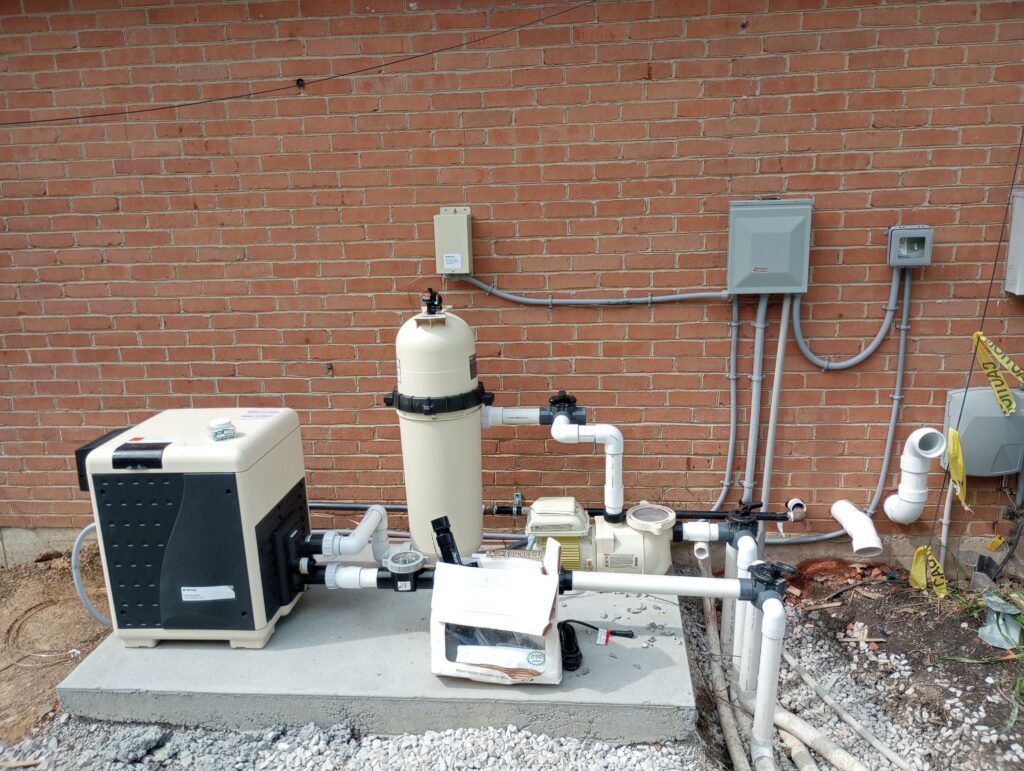
Ensuring Summer Readiness: Preparing Your Electrical System and Identifying AC Issues
Preparing Your Electrical System for Summer
As summer approaches, ensuring your air conditioner (AC) is ready to handle the heat is essential. However, it’s equally crucial to prepare your home’s electrical system for the increased load and be aware of signs that your air conditioner might need electrical repairs.
In this comprehensive guide, we’ll cover steps to prepare your electrical system for summer, identify common electrical issues with AC units, and provide tips for maintaining a safe and efficient cooling system.
Check Circuit Capacity
Before the summer heat arrives, it’s important to ensure your home’s electrical system can handle the increased load from your air conditioner. Here’s how:
- Assess Current Load: Determine the current load on your circuits. Your home’s electrical panel should indicate the amperage rating for each circuit. Add up the total load from all appliances and devices on the same circuit as your AC.
- Compare with AC Requirements: Check the amperage requirements of your air conditioner, typically listed on the unit or in the user manual. Ensure the circuit has enough capacity to handle the AC without overloading.
Inspect and Upgrade Wiring
Older or damaged wiring can pose a significant risk when running an air conditioner. Follow these steps to ensure your wiring is up to standard:
- Visual Inspection: Look for visible signs of wear and tear on your electrical wires, such as fraying, discoloration, or burn marks.
- Professional Inspection: Hire a licensed electrician to perform a thorough inspection of your home’s wiring. They can identify hidden issues and recommend necessary upgrades.
- Upgrade if Needed: If your wiring is outdated or insufficient for your AC’s power needs, consider upgrading to ensure safety and efficiency.
Test Circuit Breakers
Circuit breakers are crucial for protecting your electrical system from overloads and short circuits. To ensure they’re functioning properly:
- Manual Testing: Turn off and then back on each circuit breaker in your panel. This helps ensure they’re not stuck or malfunctioning.
- Professional Testing: Have an electrician test the functionality of your breakers, especially the one connected to your air conditioner. They can identify any weak or faulty breakers that might need replacement.
Ensure Proper Grounding
Proper grounding is essential for electrical safety and can prevent electrical shocks or fires. Here’s how to check your grounding:
- Visual Check: Ensure that all grounding wires are securely connected to grounding rods or plates.
- Professional Assessment: An electrician can test the grounding system for effectiveness and make necessary adjustments or repairs.
Consider Surge Protection
Power surges can damage your air conditioner and other electrical appliances. Installing surge protectors can safeguard your equipment:
- Whole-House Surge Protector: Consider installing a whole-house surge protector at your electrical panel to protect all devices and appliances.
- Individual Surge Protectors: Use surge protector power strips for individual devices, especially sensitive electronics.
Schedule a Professional Inspection
A professional electrical inspection is invaluable for ensuring your system is ready for summer. An electrician can:
- Identify Potential Issues: Detect hidden problems that could cause issues when your AC is running.
- Perform Preventative Maintenance: Conduct routine maintenance to keep your electrical system in optimal condition.
- Provide Recommendations: Suggest upgrades or repairs to enhance safety and efficiency.
Signs Your Air Conditioner Needs Electrical Repairs
Even with proper preparation, electrical issues can still arise. Here are common signs that your air conditioner might need electrical repairs:
Tripped Circuit Breakers
Frequent tripping of circuit breakers when your AC is running indicates an electrical issue. Possible causes include:
- Overloaded Circuit: Your AC may be drawing more power than the circuit can handle, necessitating an upgrade.
- Short Circuit: Faulty wiring or components within the AC unit could be causing short circuits.
Unusual Noises
Strange noises from your air conditioner, such as buzzing or humming, often point to electrical problems:
- Loose Connections: Loose or damaged electrical connections can create resistance, leading to buzzing sounds.
- Faulty Capacitors: A failing capacitor can produce a humming noise and affect your AC’s performance.
Inconsistent Power Supply
If your air conditioner frequently turns on and off or doesn’t start at all, there may be electrical issues at play:
- Faulty Thermostat: A malfunctioning thermostat can cause inconsistent operation.
- Electrical Component Failure: Components like relays, capacitors, or contactors might be failing and need replacement.
Burning Smell
A burning smell coming from your air conditioner is a serious warning sign:
- Overheating Wires: Overloaded or damaged wires can overheat and emit a burning odor.
- Component Failure: Failing electrical components can also overheat and produce a burning smell.
Hot or Sparking Outlets
Outlets or plugs that feel hot to the touch or produce sparks are dangerous and require immediate attention:
- Overloaded Circuit: The circuit may be overloaded, causing overheating.
- Faulty Wiring: Damaged or loose wiring can cause sparking and overheating.
Non-Responsive Controls
If your air conditioner’s controls are unresponsive, there might be an electrical problem:
- Control Board Issues: The control board, responsible for managing the AC’s functions, may be failing.
- Loose Connections: Loose or corroded connections can disrupt the control signals.
Maintaining a Safe and Efficient Cooling System
To ensure your air conditioner operates safely and efficiently throughout the summer, follow these maintenance tips:
Regular Cleaning and Maintenance
Keep your AC unit clean and well-maintained to prevent electrical issues:
- Clean Filters: Replace or clean filters regularly to ensure proper airflow and efficiency.
- Inspect Coils: Clean the evaporator and condenser coils to prevent overheating and electrical strain.
- Check Fan Blades: Ensure fan blades are clean and balanced to avoid electrical overload.
Monitor Energy Usage
Keep an eye on your energy bills for any unusual spikes:
- Identify Issues: Sudden increases in energy usage can indicate electrical problems or inefficiencies in your AC unit.
- Professional Check-Up: If you notice a spike, have a professional inspect your AC for potential issues.
Use a Programmable Thermostat
A programmable thermostat can help maintain a consistent temperature and reduce electrical strain:
- Set Schedules: Program the thermostat to adjust temperatures when you’re away or sleeping.
- Avoid Overuse: Prevent the AC from running excessively, reducing wear and electrical load.
Schedule Professional Maintenance
Regular professional maintenance can catch electrical issues early and keep your AC running smoothly:
- Annual Tune-Up: Schedule an annual tune-up with a licensed HVAC technician.
- Electrical Inspection: Include an electrical inspection as part of the maintenance to ensure all components are in good condition.
Upgrade When Necessary
If your air conditioner is old or frequently experiences electrical issues, consider upgrading to a more efficient model:
- Energy Efficiency: Newer models are often more energy-efficient, reducing electrical load and costs.
- Enhanced Features: Modern AC units come with features like improved thermostats and better safety mechanisms.
By taking proactive steps to prepare your electrical system for summer and recognizing signs of potential electrical issues, you can ensure a safe, efficient, and comfortable cooling experience. Regular maintenance, professional inspections, and timely repairs will keep your air conditioner running smoothly and your home cool during the hottest months of the year.



